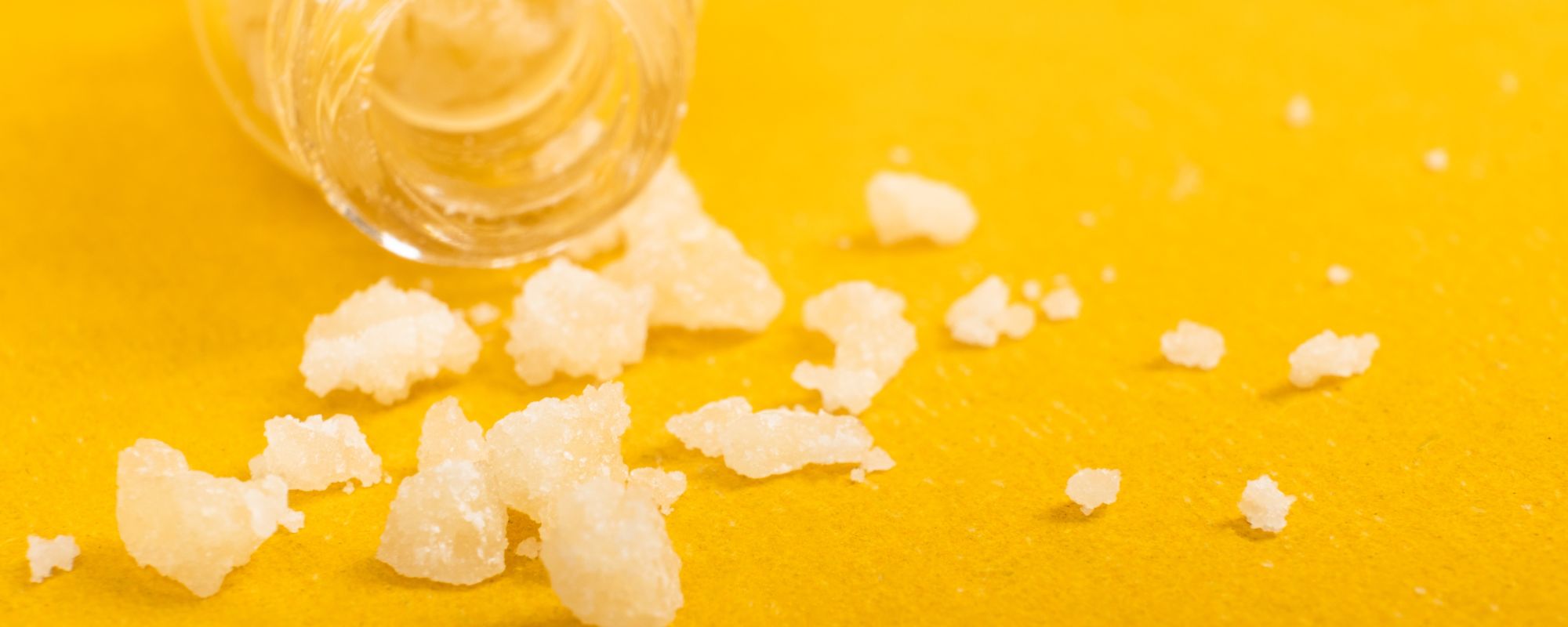Stress is a widespread health issue affecting billions around the globe, and stress and substance abuse are often linked. While difficult to pinpoint, almost every person will experience some kind of stress, worry, or concern in their lifetime. For many, stress is a large concern that impacts their well-being on a regular or even daily basis. Roughly 77 percent of Americans report stress that impacts their physical health, and 73 percent report it impacting their mental health. Even more so, 27 percent of Americans say their stress levels prevent them from functioning on a daily basis. Stress affects people of all ages and backgrounds, with different demographics facing unique additional stressors. It can result in poor mental and physical health, but there’s also a link between stress and substance abuse. Let’s talk about what stress-induced addiction looks like.
Stress and Substance Abuse; What’s the Connection?
Undeniably, there is a tie between stress and addiction, whether it is alcohol or drug disorders. Stress is related to every stage of the addiction process, from initial use to maintenance, treatment, and relapse. Self-medication refers to using substances to avoid or dissolve negative feelings. However, self-medication only offers a temporary result and will worsen one’s issues over time if they develop an addiction. Stress increases one’s vulnerability to addiction. Once they override their stress with a temporary euphoria, they start down the road to dependency.
How Does Stress Contribute to Substance Abuse?
Stress and drug use, as well as stress and drinking, are irrevocably connected. The more you feel bogged down by your stress and anxiety, the greater your risk of substance abuse. This is because you’ll look for relief, especially if your stressful life situations are constant and out of your control. Notably, stress itself doesn’t cause resulting health issues, such as substance abuse. Rather, the issues stem from how an individual responds and reacts. Stress may create feelings of being overwhelmed, helpless, anxious, fatigued, or depressed. In some cases, it triggers other similar feelings or memories, such as trauma. If an individual hasn’t developed healthy coping skills, they might not be able to handle their situation without turning to an outlet. Thus, drugs and alcohol are easy temporary escapes. Drugs and alcohol trigger positive chemical messengers like dopamine and serotonin in the brain, which alleviate the symptoms of stress.
Both current and past stress contribute to addiction. Early life stress, such as childhood trauma or instability, can influence substance abuse later in life. In fact, early life stress (ELS) is a risk factor for mental disorders and substance use disorder (SUD). It is connected to earlier onset of addiction and more challenges in treatment. This is because ELS modifies neurobiology and one’s reactions to stress.
Addiction and the Brain
When a person becomes dependent on substances, it’s actually a neurochemical process. This is why substance use disorder (SUD) is categorized as a brain disorder. If you develop an addiction, you won’t be able to stop on your own because of substances’ powerful psychological pull. Drugs and alcohol trigger the reward system in the brain. By adapting the way it sends messages and signals, substances slowly override your natural functioning. Some drugs bind to neurotransmitters to control the messaging in your system. By flooding the body with “happy hormones,” you become dependent on the positive effects until you start craving more. Additionally, you will develop a tolerance to substances so you require more, more often.
Similarly, chronic stress can also alter your brain chemistry over time. Overall, the combination of stress and substances modifying your natural cognitive functions can put you in a dangerous place. You may feel incapable of handling the effects on your own.
How Does Stress Impact Health?
Stress takes an overall toll on your health, from your mental to your emotional to your physical wellness. The holistic approach to healing believes everything is connected, both in pain and in healing. To elaborate, regardless of whether you feel stress in your body, mind, or spirit, true healing takes into account each part of you. We treat mental, emotional, and physical illness as interconnected issues at Sound Recovery. When you’re sick, your mental, physical, and emotional state play a role, and the same is true when you’re healthy. If you struggle with recurring stress and anxiety, you might be feeling sick in any of these areas. Know that treatment for each interconnected problem does exist close by in Washington state.
Stress and Mental Wellbeing
Stress has a direct link to your mental health because it can trigger symptoms of mental illness. Additionally, stress can worsen a pre-existing condition. Common side effects of stress, regardless of your mental health history, include:
- Anxiety
- Irritability
- Mood swings
- Depression
- Hopelessness
- Loss of interest in passions
- Trauma responses
As mentioned, stress can worsen mental health issues. If you have a mental disorder, stressful situations can feel like insurmountable additions to your life.
Stress and Physical Health
There are many bodily sensations from stress. Because chronic stress alters your brain messaging, these responses may be directly caused in your central nervous system. However, they can also stem from your mental or emotional unhealth. Some of the symptoms of stress on the body include:
- Poor sleep
- Headaches
- Bodily aches and pains
- Muscle tension
- Digestive issues
- Skin breakouts
- Weakened immune system
- High blood pressure
- Heart damage
Physical symptoms can lead to mobility issues and a lowered quality of life if the root cause isn’t treated.
Stress and Emotional Health
When people feel stressed, it often triggers feelings of hopelessness from being out of control. As a result, stress directly ignites an emotional response. Often, people begin to view their situation as disproportionally challenging and upsetting. Some of the emotional symptoms they may face include:
- Tearfulness
- Helplessness
- Sadness
- Fear
- Dread
- Anger
- Aggressiveness
Stress can enhance other emotional responses that might not be connected. Once you are in a vulnerable state, it’s easy to spiral until your emotional wellness is fraught.
Reach Out For Help With Addiction
Are you or a loved one struggling with addiction?
Royal Life Centers at Puget Sound is here to help you recover. Because we care.
What Substances Do People Use When They Are Stressed?
When stress leads to substance abuse, individuals will turn to a wide selection of substances that produce euphoric or calming effects. Which substances they use will depend on their access to substances, geography, and their desired result of self-medication. Both prescription medications and recreational drugs are involved in cases of stress and substance use.
Alcohol
Alcohol remains one of the most widely abused substances. It is easy to access and doesn’t have the negative stigma of many drugs. To elaborate, alcohol use is commonly shown in a positive light, and it is socially acceptable to engage in regular drinking. However, what many people don’t realize is how addictive alcohol is. Just like with drugs, alcohol stimulates the brain’s reward system. Alcohol dependency can occur from unhealthy drinking patterns, like heavy drinking. Unfortunately, alcohol abuse often begins in adolescence and worsens over time. Alcohol use disorder (AUD) is the most severe form of alcohol addiction, also referred to as alcoholism.
Marijuana
Marijuana is a substance people commonly turn to in order to cope with stress and anxiety. While low doses of the psychoactive ingredient THC can have calming effects on the system, using too much marijuana can produce the opposite result. Symptoms of hallucinations, anxiety, and paranoia can be triggered by marijuana use. Individuals may enjoy an initial relaxing effect from weed, but as their tolerance develops and they use more, their experience can become entirely different. Then, marijuana detox is required to reset their system and help them overcome their dependence.
Prescription Drugs
Prescription medications include psychostimulants, opioids, and central nervous system depressants. Notably, prescription drugs are intended for intentional use as set by a doctor’s prescription. However, they are commonly either misused or abused. For instance, misusing a prescription med could look like taking too much or using it more often than intended. On the other hand, prescription drug abuse is common. Some medications provide a high, while others have a calming effect. Prescription drug abuse requires professional treatment to wean off of brain-altering substances.
Stimulants
Stimulants are prescription medications that wake up the system. Also called “uppers,” they produce alertness, focus, energy, and sociability. They are prescribed for conditions like depression, narcolepsy, and ADHD. Stimulant abuse is a widespread issue. This drug type has a reputation as a “party drug” because stimulants have a strong effect on the brain. Notably, stimulants include Adderall, meth, cocaine, and ecstasy.
What Is Dual Diagnosis Treatment?
Dual diagnosis is a program treatment track we offer through Royal Life Centers. Specifically, it is for individuals who are diagnosed with co-occurring issues, like a mental disorder and substance use disorder.
Co-Occurring Mental Health and Substance Use Disorders
Mental health and substance abuse are directly tied. Sometimes, mental disorders lead to self-medication with substances. Other times, SUD creates symptoms of mental illness. As a result, a great number of people would benefit from dual diagnosis treatment. At Sound Recovery, we use a holistic approach to address a person’s multiple issues simultaneously. We know illnesses are tied together and, without comprehensive healing, an individual will stay trapped in their pain. As part of our commitment to healing both mental health and substance abuse, we offer dual diagnosis rehab for anyone who needs it.
How Does Treating Both Issues Aid in Recovery?
It is important to enter recovery programming that addresses both your mental health and addiction challenges. As we discussed, your physical, mental, and emotional wellness are tied together. Therefore, if you have an illness, you need to ensure you’re nurturing all areas of your health in the healing process. Even more so, if you have multiple illnesses, your total wellness will decline. Treatment for co-occurring disorders combines a mixture of traditional and alternative therapies to holistically heal your system. If you have any questions about how we heal dual diagnoses at Sound Recovery, please give us a call.
Finding Help for Substance Abuse
Without a doubt, stress and substance abuse are connected. Experiencing stressful situations makes you vulnerable to substance addiction, especially if you have a history of mental illness or SUD. We offer person-centric drug addiction treatment in Washington state. Our guests are valued as people first, not their disorders. We would love to welcome you to Sound Recovery to help you get the care you need.
REFERENCES:
- Early Life Stress and Substance Use Disorders: The Critical Role of Adolescent Substance Use – ScienceDirect
- Everything You Need to Know About Stress – Mclean Hospital
- More Than a Quarter of U.S. Adults Say They’re So Stressed They Can’t Function – American Psychological Association (APA)
- Neurobiological and Systemic Effects of Chronic Stress – National Library of Medicine






